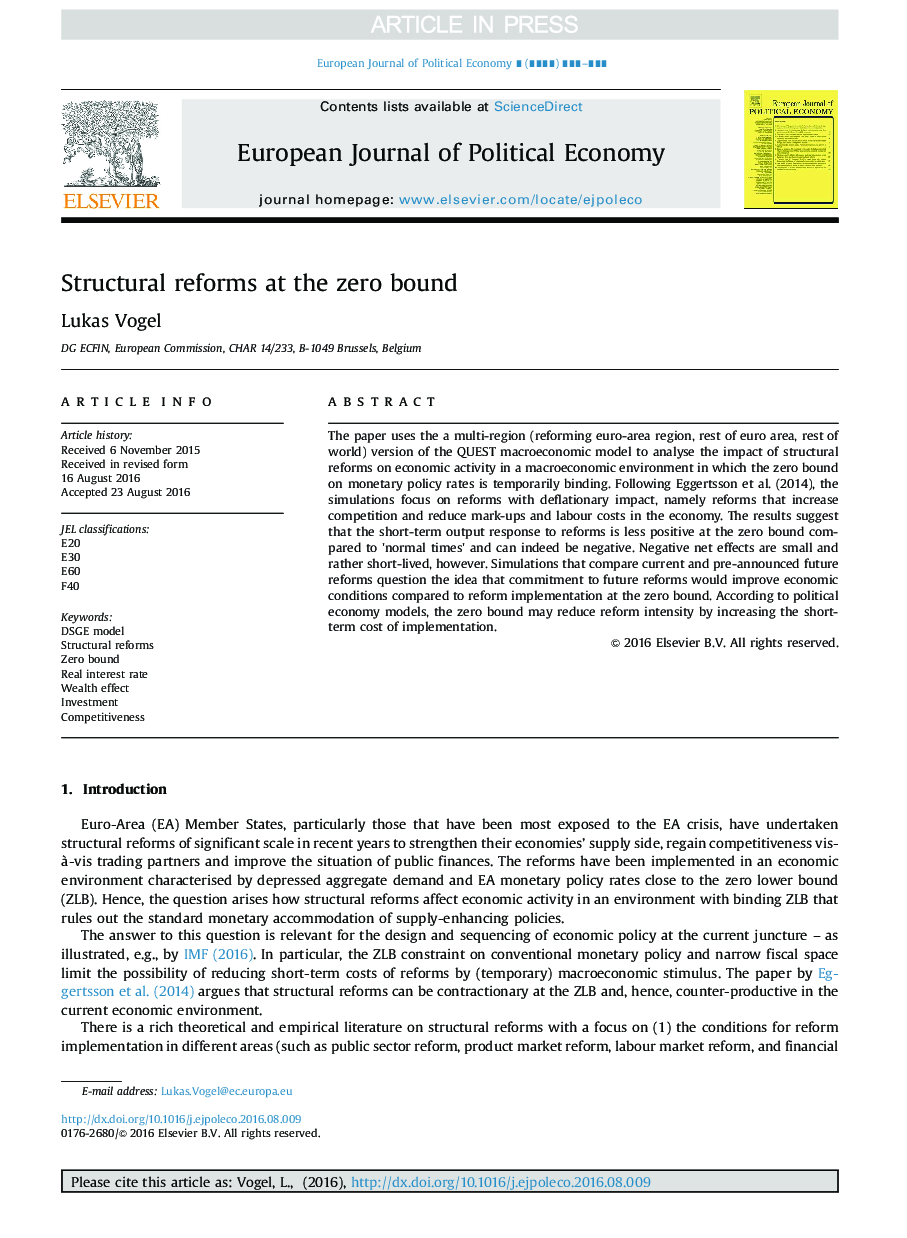| Article ID | Journal | Published Year | Pages | File Type |
|---|---|---|---|---|
| 5067776 | European Journal of Political Economy | 2017 | 17 Pages |
Abstract
The paper uses the a multi-region (reforming euro-area region, rest of euro area, rest of world) version of the QUEST macroeconomic model to analyse the impact of structural reforms on economic activity in a macroeconomic environment in which the zero bound on monetary policy rates is temporarily binding. Following Eggertsson et al. (2014), the simulations focus on reforms with deflationary impact, namely reforms that increase competition and reduce mark-ups and labour costs in the economy. The results suggest that the short-term output response to reforms is less positive at the zero bound compared to 'normal times' and can indeed be negative. Negative net effects are small and rather short-lived, however. Simulations that compare current and pre-announced future reforms question the idea that commitment to future reforms would improve economic conditions compared to reform implementation at the zero bound. According to political economy models, the zero bound may reduce reform intensity by increasing the short-term cost of implementation.
Keywords
Related Topics
Social Sciences and Humanities
Economics, Econometrics and Finance
Economics and Econometrics
Authors
Lukas Vogel,
